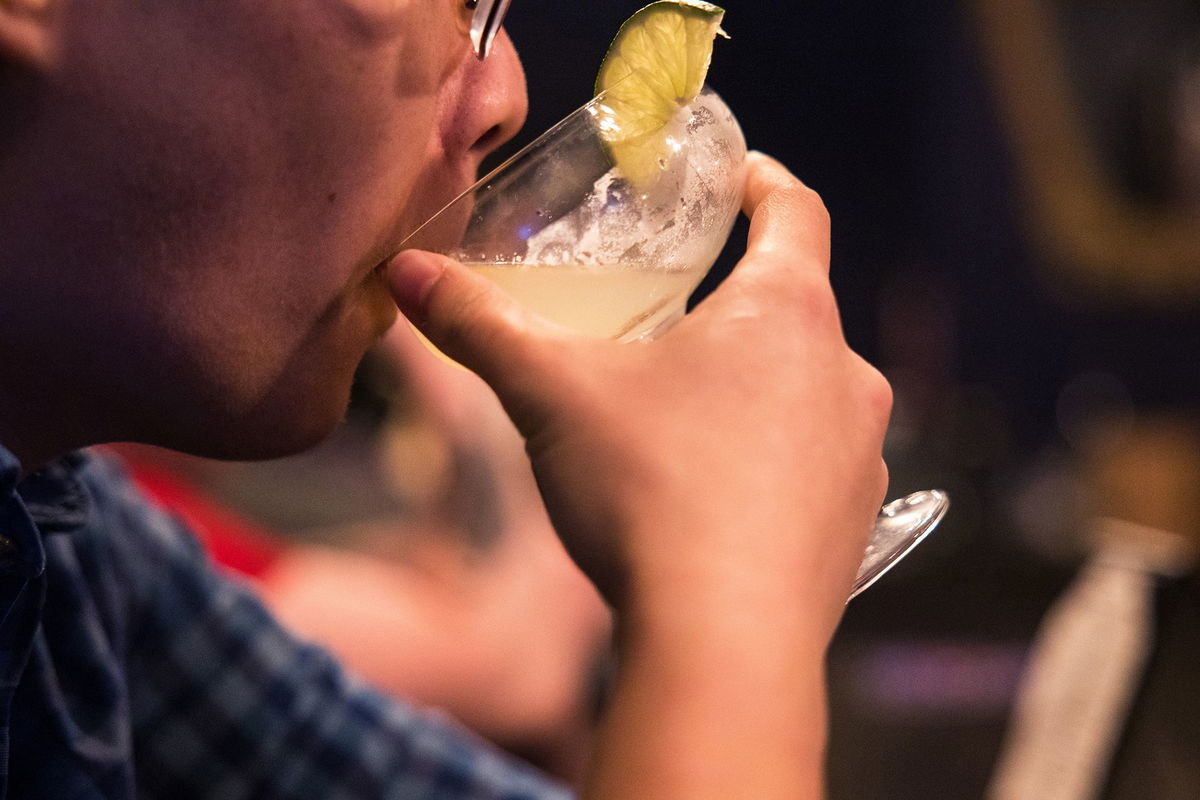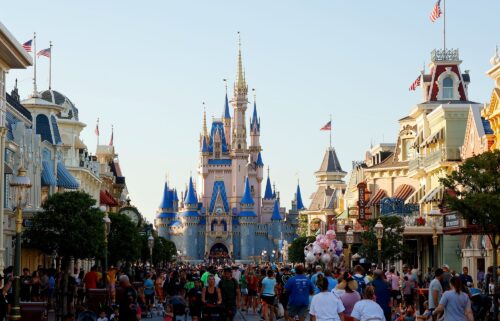Americans have already been ditching spirits and beer. Alcohol companies are future proofing themselves

A customer enjoys a non-alcoholic beverage at Hekate Cafe and Elixer Lounge on January 20
By Jordan Valinsky, CNN
New York (CNN) — Friday’s warning from the US surgeon general that alcohol is a “well-established, preventable cause of cancer” is perhaps a wakeup call for millions of Americans, but it’s the worst-case scenario that many beer and spirits companies have been preparing for over the years.
Major brewers, including Molson Coors and Anheuser-Busch InBev, and spirit giants such as Diageo and Pernord Ricard, have all grown their portfolios with new non-alcoholic drinks to attract an increasing number of consumers, particularly younger ones, who are ditching drinking because of health concerns.
A Gallup poll from August found that almost half of Americans say that having one or two drinks a day is bad for a person’s health — the highest percentage recorded in the survey’s 23 years, and younger adults were most likely to say drinking is bad for health. The poll also showed that just 58% of adults said they drink alcohol, down from 67% in 2022, although Gallup notes it’s relatively close to the historical average of 63% going back to 1939.
But that doesn’t predict a doomsday scenario for Big Alcohol. It actually could be good for their bottom lines: A December report from IWSR, a leading drinks analysis firm, said that the non-alcoholic drinks global market is “experiencing a transformative period of growth, driven by evolving consumer behaviors and the momentum of no-alcohol.”
The trend, to be led by the United States, is expected to grow by $4 billion by 2028 in the firm’s forecast. Non-alcoholic drinks are even “skewing younger than the core buyer demographic across markets, and demonstrate higher frequency and intensity of consumption,” signaling that there’s a sustained thirst for booze-less beverages.
Coors first saw signs of the trend in 2019 when it repositioned itself as the Molson Coors Beverage Company and expanded its lineup beyond its flagship Miller Lite and Coors Light beers.
“Beer will always be at the heart of what we do, but we know there’s an enormous opportunity with non-alc and that’s why we’ve committed to making it an important part of our business,” Kevin Nitz, Molson Coors Beverage Company’s vice president of non-alcohol products, said in a 2023 blog post.
Since then, it’s expanded into zero-sugar energy drinks, non-alcoholic beers like Peroni 0.0 and, this year, is bringing a popular zero-proof Australian canned cocktail alternative called Naked Life to US shelves. Nitz said that sales of the non-alcoholic ready-to-drink category is up nearly 70% in the US over the past year.
Meanwhile, rival Anheuser-Busch InBev is focusing on its lineup of non-alcoholic beers, which includes Budweiser Zero, Stella Artois 0.0, O’Doul’s, Corona Cero and, rolling out this month, Michelob Ultra Zero. Although it doesn’t break out specific numbers, the company said in its 2023 annual report that its non-alcoholic beers “continued to outperform, delivering high-teens revenue growth.”
Even smaller craft breweries, which have struggled in recent years, are cashing in on the non-alcoholic craze. The largest craft brewer making non-alcoholic beers is Athletic Brewing Company, which is now the top-selling beer at Whole Foods.
Brewers Association’s annual report showed that there’s been “rising interest among craft beer consumers” which is “driven by a mix of lifestyle choices and by so many new non-alcohol craft options,” Matt Gacioch, staff economist with firm, told CNN.
It’s a trend expanding beyond Dry January, too. Non-alcoholic beer sales have jumped more than 100% in all months between 2021 and 2024 (excluding unreleased December figures), he said.
“Although non-alcoholic beer tends to have the largest share of beer dollar sales overall in January, the share is only marginally higher than the other months in the year,” said Gacioch. “If anything, the share of non-alcoholic sales gets a bump in January that sets the new baseline for the ensuing calendar year.”
Spirits and wines, too
Spirit and wine companies, both large and small, are also capitalizing on the trend.
Diageo, the maker of more than 200 alcoholic brands such Ketel One vodka, Tanqueray gin and Johnnie Walker Scotch whisky, bought Ritual Zero Proof, the top-selling US non-alcoholic spirits brand in September. Adding the brand, which sells non-alcoholic versions of popular cocktails like old fashioneds, negroni and margarita, lets Diageo “present consumers with even more choice and variety,” a press release said.
Similar to other spirit brands, Diageo is facing a decline in sales after a pandemic-induced boom. Consumers are cutting back on pricey purchases and are reevaluating their relationship with alcohol, prompting Diageo’s CEO Debra Crew to call it a “volatile operating environment.”
Pernod Ricard, the maker of Beefeater London Dry Gin, last year launched a non-alcoholic version of gin, joining its lineup of Cinzano Spritz 0% and Ceder’s, a gin-like, booze-free drink. Still, US sales of Pernod brands slumped 10% in its most recent quarter because retailers “continue to tightly manage their stock level and promotional intensity remains strong,” Hélène de Tissot, the company’s financial officer, said on a recent call.
Perhaps one of the biggest companies in the space recently is Moët Hennessy, which last year invested an undisclosed price in French Bloom, a non-alcoholic sparkling wine, marking its first-ever entrance into the category.
David Serre, executive vice president of strategy and finance at Moët Hennessy, told CNN that there’s a “growing demand for high-quality non-alc alternatives among our consumers in particular driven by the rise of ‘flexidrinkers,’ who are seeking to moderate their consumption without compromising on taste or experience.”
It’s a notable investment in non-alcoholic wine, which hasn’t had a breakthrough brand like beers and spirits. Still, that hasn’t stopped others from trying, including Society De La Rassi, a new $70 “dealcholized” sparkling wine made from Chardonnay grapes in Spain. Founder Steve Jackson told CNN that he wanted to create an upscale drink that’s similar tasting to champagne for classier moments in life, like weddings.
The-CNN-Wire
™ & © 2025 Cable News Network, Inc., a Warner Bros. Discovery Company. All rights reserved.

